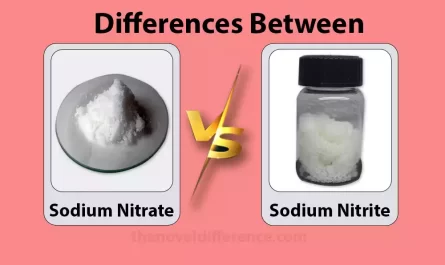When it comes to liquid fuels, heating oil and diesel are often mentioned in the same breath due to their shared origins and similar properties. They serve different purposes and exhibit unique qualities. which makes them suitable for certain applications.
Understanding the difference between heating oil and diesel is essential to making informed decisions about their use. We’ll break down the key differences between these two fuels and provide insight into their individual strengths.
Importance of Heating oil
Heating oil is an essential component of many heating systems. It is of significant importance due to its important role in providing consistent and reliable heat for both residential and industrial purposes. Especially in areas where natural gas infrastructure may be limited or unavailable. A reliable alternative is heating oil.
This ensures that houses remain warm and livable even in the harshest winters. This essential energy source not only provides warmth but also enhances the sense of security and comfort for the family. Industries rely on heating oil to maintain optimal operating temperatures for various processes and protect equipment performance and overall productivity.
Environmental concerns are increasingly important, however. The correct use and management of heating oil, combined with advances in technology, contribute to a more efficient and sustainable heating solution. So, the importance of heating oil lies in its ability to provide reliable heating solutions. which underlies the effectiveness of houses and industries. All adapt to evolving energy landscape challenges.
Importance of Diesel
Diesel fuel plays an important role in modern society. Which is of great importance for transportation, industrial activities, and power generation. As the lifeblood of the diesel engine, it powers a wide range of vehicles including trucks, buses, ships, and construction equipment. which enables the efficient movement of goods and people over vast distances.
Diesel fuel’s energy density and combustion characteristics make it an ideal choice for heavy-duty applications. Where torque, durability, and fuel efficiency are paramount. Beyond transportation, diesel generators provide a reliable source of backup power for critical infrastructure. Ensures uninterrupted operations in emergency situations.
Diesel engines are an integral part of various industrial processes. From manufacturing to agriculture, machines provide the energy that drives economic growth. Despite growing environmental concerns, advances in emission-reducing technologies and the development of cleaner diesel alternatives demonstrate the adaptability and ongoing importance of diesel as an essential energy source. which continues to advance in multiple sectors.
What is Heating Oil?
Heating oil is also called fuel oil. It is a refined liquid petroleum product specially designed for heating purposes. It is commonly used as a heat source in residential, commercial, and industrial settings, especially in regions with cold climates. Heating oil is obtained from crude oil through a refining process.

which removes impurities and adjusts its chemical composition to increase its combustion efficiency. Usually stored in tanks, heating oil is transferred to the heating system where it is burned to produce heat. It is an important energy source. Which provides reliable and consistent warmth.
Contributes to a comfortable indoor environment during the cold season. Although it has been a traditional choice for space heating. Environmental concerns have spurred efforts to transition to increasingly cleaner and more sustainable heating options.
What is Diesel?
Diesel is a type of fuel obtained from crude oil through a refining process known as fractional distillation. It is characterized by high energy density. This makes it an efficient and powerful source of energy. Diesel fuel is primarily used as fuel in diesel engines.

Which is widely used in various applications including automobiles, trucks, buses, ships, generators, and industrial machinery. Diesel engines work on the principle of compression ignition. Where the heat generated by compressing the air within the engine’s cylinder ignites the fuel. This combustion process produces mechanical energy that powers the engine and drives a variety of machinery.
Diesel fuel is renowned for its efficiency, durability, and torque characteristics, making it suitable for heavy-duty work and long distances. So, as concerns about emissions and environmental impact grow, there are ongoing efforts to develop cleaner diesel alternatives and enforce stricter emissions regulations to mitigate its environmental footprint.
Difference Between Heating Oil and Diesel
| Aspect | Heating Oil | Diesel |
|---|---|---|
| Chemical Composition | Primarily consists of long-chain hydrocarbons | Similar to heating oil, but with specific additives for engine efficiency |
| Primary Use | Residential and commercial space heating | Diesel engines in vehicles, industrial machinery |
| Energy Efficiency | High calorific value, efficient for heating | Efficient combustion in diesel engines |
| Sulfur Content | Generally higher sulfur content (varies) | Lower sulfur content due to emissions regulations |
| Storage Considerations | Indoor/outdoor tanks, potential gelling | Sensitive to temperature and water contamination |
| Emissions | Lower emissions regulations, mainly CO2 | Emissions regulations focus on NOx, particulates |
| Availability and Pricing | Prices influenced by demand and oil markets | Influenced by crude oil prices, transportation |
| Regulatory Standards | Environmental and consumer safety standards | Emission standards (Euro, EPA regulations) |
| Environmental Impact | Combustion releases CO2, particulates | NOx emissions, particulates from diesel engines |
| Future Trends | Shift towards cleaner heating alternatives | Research in cleaner diesel alternatives |
Please note that this is a simplified comparison chart and each aspect may have more nuances and details to explore.
Energy Efficiency and Calorific Value
Certainly! Energy efficiency and calorific value are critical factors in understanding the performance and effectiveness of both heating oil and diesel fuel.
Here’s a more detailed comparison of these aspects:
Heating Oil:
- Heating oil, also known as fuel oil, has a high calorific value due to its chemical composition, which consists of long-chain hydrocarbons.
- Calorific value refers to the amount of energy released per unit of fuel when it undergoes combustion.
- The high calorific value of heating oil makes it an efficient choice for residential and commercial space heating systems.
- It provides a substantial amount of heat energy when burned, resulting in effective and consistent heating of buildings.
- The energy efficiency of heating oil contributes to maintaining comfortable indoor temperatures even during colder months.
Diesel Fuel:
- Diesel fuel is renowned for its impressive energy density and high calorific value.
- This makes it an ideal choice for powering diesel engines used in various applications, including vehicles, industrial machinery, and generators.
- Diesel engines are known for their fuel efficiency, allowing vehicles and machinery to cover longer distances or operate for extended periods on a single tank of fuel.
- The high energy content of diesel fuel results in efficient combustion within diesel engines, leading to improved mechanical efficiency and power output.
- Diesel engines are characterized by their torque and longevity, making them well-suited for heavy-duty tasks.
Both heating oil and diesel fuel exhibit high energy efficiency and possess impressive calorific values. So, their utilization differs heating oil focuses on providing heat for buildings, while diesel fuel powers engines for transportation and industrial purposes.
Regulation and Legislation
Certainly, regulation and legislation play a significant role in shaping the production, distribution, and use of both heating oil and diesel fuel.
Here’s a comparison of how they are regulated:
Heating Oil:
- Heating oil is subject to various regulations that aim to ensure environmental safety and consumer protection.
- Regulations may cover storage tank requirements, addressing potential leaks and spills to prevent soil and water contamination.
- Depending on the region, specific rules might be in place to govern the quality and composition of heating oil, aiming to minimize emissions and ensure safe combustion.
- Regulatory agencies might set guidelines for the installation, maintenance, and inspection of heating oil storage tanks to prevent leaks and potential hazards.
- As environmental concerns increase, there might be efforts to transition to cleaner heating alternatives to reduce the impact of heating oil combustion.
Diesel Fuel:
- Diesel fuel is subject to rigorous regulations due to its significant role in transportation and industrial emissions.
- Emission standards set by regulatory bodies like the U.S. EPA or European Union dictate the permissible levels of pollutants emitted by diesel engines, such as nitrogen oxides (NOx) and particulate matter.
- These regulations have driven advancements in engine technology and the formulation of cleaner diesel fuels to meet stringent emission standards.
- The introduction of Ultra-Low Sulfur Diesel (ULSD) has been mandated in many regions to reduce sulfur emissions, which can contribute to air pollution and health issues.
- Efforts to reduce emissions have led to the development of after-treatment systems, such as selective catalytic reduction (SCR) and diesel particulate filters (DPF), which help control harmful emissions from diesel engines.
While both heating oil and diesel fuel are subject to regulations, the level and focus of regulation differ significantly due to the distinct roles these fuels play in heating and transportation. Diesel fuel regulations primarily target emissions reduction, whereas heating oil regulations are more concerned with safety, storage, and combustion efficiency.
Conclusion
While heating oil and diesel share common origins, they are distinct fuels with unique properties and applications. Heating oil is tailored for efficient combustion in heating systems, providing reliable warmth for buildings. Diesel, on the other hand, powers a wide range of vehicles and machinery, offering a combination of power and fuel efficiency. Both fuels have evolved to meet environmental standards, with cleaner combustion and reduced emissions.




